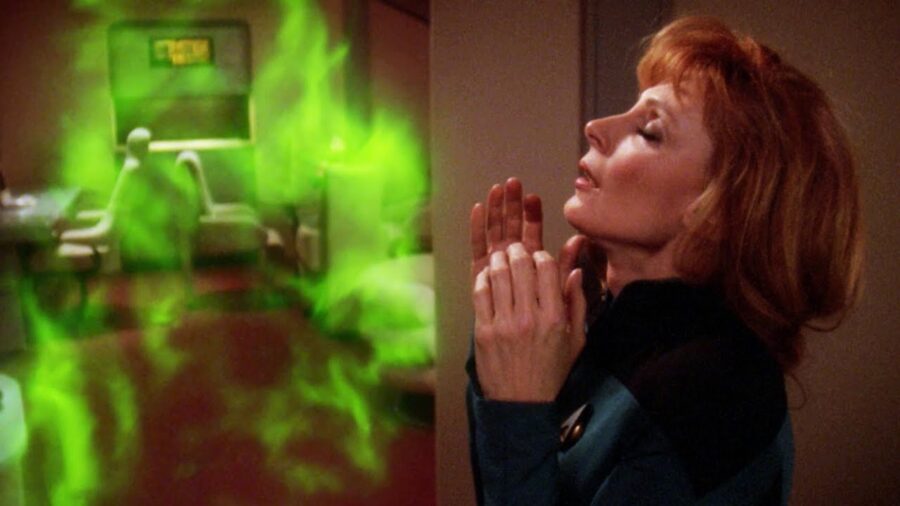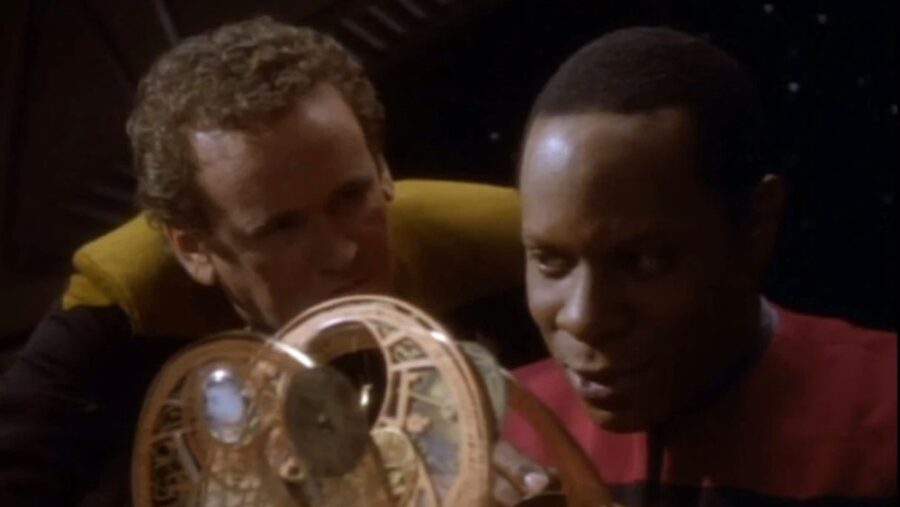Star Trek Keeps Trying To Revive A Dead Language

A major plot point in the final season of Star Trek: Discovery was that one character wanted to find the advanced technology of an extinct race and use it to bring her alien boyfriend back to life. Things didn’t work out exactly as she had planned, but it turns out that this franchise doesn’t need fancy Progenitor technology to resurrect the dead. As of this writing, a whopping 17 Star Trek episodes feature Latin titles, and it doesn’t look like this franchise will stop trying to bring this dead language back to life anytime soon.
Sub Rosa

Interestingly, when you look at how Star Trek has used Latin to create titles, the love for this ancient language has been spread throughout almost every series since The Next Generation. That show only used Latin for one episode title: “Sub Rosa.”
This translates to “under the rose” as a reference to keeping secrets, though the main secret in that episode is that Dr. Crusher’s grandmother spent the last part of her life having a tryst with a candle ghost who looks like he has strong feelings about Bridgerton.
DS9

The Star Trek: The Next Generation spinoff Deep Space Nine doubled things up, giving us two episodes with Latin titles. “Dramatis Personae” (which simply means “the persons of the drama,” as in a list of cast members in a play) was the episode where a telepathic influence caused the station staff to re-enact an ancient alien conflict.
The next Star Trek: Deep Space Nine episode with a Latin title was “Inter Arma Enim Silent Leges,” and it serves as a reminder that genetic augmentation also helps Bashir give more dramatic translations. You see, the title rather literally translates to “Amongst arms the laws become mute,” but the doctor translates it as the much catchier line “In times of war, the law falls silent.”
Ex Post Facto

While we’re not going to review every single Star Trek episode using this dead language for its titles, it’s worth noting that some of these Latin-sounding episodes are easier to understand than others.
For example, Voyager’s “Ex Post Facto” title translates to “after the fact,” something anyone who has watched a couple episodes of Law & Order already knows. Meanwhile, the Discovery two-parter “Terra Firma” simply means “solid Earth,” which you might already know from the Farscape episode of the same name or that surprisingly catchy Todd Rundgren song.
Memento Mori

Speaking of Star Trek episodes with familiar Latin phrases as titles, Strange New Worlds had a season 1 episode titled “Memento Mori.” The cheerful phrase translates to “remember, you must die,” and it was very fitting for this scary adventure.
Not only does the episode prominently feature Captain Pike and crew honoring fellow officers who had died in the line of service, but it also re-introduced us to the Gorn, dangerous aliens who would ultimately prove to be the death of the engineer Hemmer.
We All Have Universal Translators

Of course, this is just the tip of the Star Trek iceberg when it comes to Latin titles. Once upon a time, the franchise’s reliance on this dead language might have seemed a bit pretentious because most audiences had no idea what the titles even meant.
Now that everyone’s phone can serve as a Universal Translator, though, Star Trek as a franchise has done what even Captain Burnham couldn’t: bring the dead back to life, one episode at a time.










